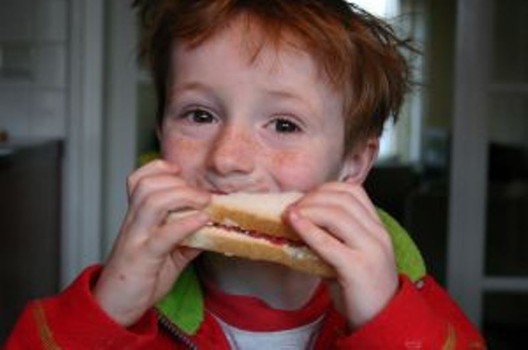Just because one child in the family has a food allergy, does not necessarily mean that siblings will also have the same allergy, a new study reports. Presented at the American College of Allergy, Asthma and Immunology (ACAAI) Annual Scientific Meeting in San Antonio, research findings showed that while a little more than half of siblings of children with food allergies had a food sensitivity or intolerance, only 13 percent had actual food allergies.
“Too often it’s assumed that if one child in the family has a food allergy, the other kids need to be tested for allergies,” lead author and allergist Ruchi Gupta, MD, MPH, an associate professor of pediatrics at Northwestern University, said in a news release. “But testing for food allergies if a reaction hasn’t taken place can provide false-positives, as we saw in our research.”
For the study, Gupta and her colleagues analyzed the records of 1,120 children who had a sibling with a documented food allergy. Findings showed that only 13 percent of the siblings who tested positive on various blood and skin-prick tests had an allergic response to a food within two hours of ingestion. However, 53 percent had a positive test, but no allergic response to ingesting the suspect food.
“More than half the kids in the study had a sensitivity to the food, but they weren’t truly allergic. Kids who have a food sensitivity shouldn’t be labeled as having a food allergy,” Gupta said.
The difference between food sensitivity and food allergy is frequently confused, James Li, MD, PhD, of the Mayo Clinic and past president of the ACAAI, told UPI. Food allergies can result in vomiting or cramps, hives, wheezing, tightness of the throat, feeling faint, and in some cases a potentially life-threatening immune response. Food sensitivities may cause slight digestive problems. Small amounts of allergenic food generally don’t cause problems for children who only have a sensitivity, Li explained.
The researchers believe that food allergy testing in siblings of kids who have food allergies should be limited — with one exception. Their research found variables in children who had a previous history of asthma or eczema. Gupta recommends this group in particular should be tested using oral food challenges, where the child ingests measured doses of the suspect food under a physician’s care.
While the authors see the need for more extensive study, they advise following the National Institute of Allergy and Infectious Disease guidelines, which do not recommend routine screenings for siblings of kids with food allergies.
“The risk of food allergy in one sibling, based on the presence of food allergy in another, has never been completely clear,” co-author and allergist Matthew Greenhawt, MD, an assistant professor in the department of internal medicine and the department of pediatrics and communicable diseases at the University of Michigan, said in the news release.
“This perceived risk is a common reason to seek ‘screening’ before introducing a high-risk allergen to siblings. But screening a child before introducing a high-risk allergen is not recommended. Food allergy tests perform poorly in terms of being able to predict future risk in someone who has never eaten the food before. Our study showed that testing should be limited in order to help confirm a diagnosis, rather than as a sole predictor to make a diagnosis,” Greenhawt added.








